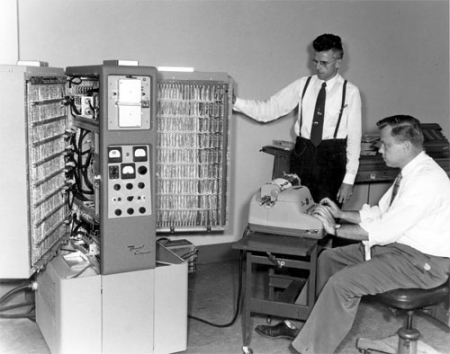The life of Bruno Lussato - 1960's - 1970's
By Kevin Bronstein

Dear Friends,
The following post is the next installment of The life of Bruno Lussato. In the first blog I recounted my initial encounters with the Professor and left us at the begining of the 60’s. At that stage he had already gotten himself his professorship at the CNAM and started professing the benefits of American management theory. His activities as a researcher and professor allowed him to apply this theoretical framework to the very real situations he started to face with his clients.
Bruno and I shared many of the same values when it came to management. The following principles were at the centre of his work in the 60’s and 70’s but stayed core to his beliefs as long as I knew him: Decentralisation; Manage through goals, not procedures; Simplify workflow.
It was a time where American enterprise, supported by the contemporary academics, thrived in a virtuous balance between stakeholders shareholder value, respect of the clients, employees and the host countries to these newly emerging multinational outfits. It was a time where there was a genuine desire to preserve the prestige and the quality of the products, not the brand, and the religion of work ethics was pervasive throughout the enterprise. Having lived through these days myself, I can assure you that there was no cynicism, no demagogy nor naïveté on behalf of the companies contrarily to today’s vacuous mission statements implemented by short termist professional CEO’s. T
hese principles were defended by the likes of Professor Lussato and organisations such as the AFAP (l'Association Française pour l'accroissement de la productivité), the CNOF (Le comité national pour l'organisation française) but in particular the OST(Organisation Scientifique du Travail) at Lussato’s CNAM (Conservatoire National des arts et Métiers). This benevolent vision of enterprise, emboldened by the technical knowledge of the likes of the Professor and myself (often did I participate alongside Bruno in AFAP or OST events), allowed Europe to graduate in a near miraculous timeframe –although China seems to be making new time here- from a arts and craft post war societies to fully industrialized nations.
I visited Bruno in Paris in 1962, a trip I vividly remember. He was working at the BHV in the service of a visionary of the time, Georges Lillaz. He had a truly human approach to retailing allowing for unheard of autonomy to the so called “Chef de Rayon” (department manager in a store) who were both buyers and sellers. He despised the “other” model that most Wall Mart like chains follow: Bureaucratic, centralized decision-making subjected to the illogic language of IT Systems of the time and self centred agendas of HQ managers.
Bruno and I ventured into our own directions but similar principles, I remember that much of his research was financed by his core clients of the time like Shell, Philips or Carnation Milk and worked alongside Johnson in Seattle or Herb Simon at Carnegie. After Bruno published Large Scale Integrated Information Systems with McMillan I believe, his position created upheaval in France. I remember people accusing him of being a revolutionary utopian, a delusional dreamer and that IT systems would never constitute a meaningful element of management. Yet IBM seemed to think otherwise and supported the creation of a dedicated “Chaire d’Etat” (a distinctly french type of national, state designated and prestigious professorships) named TSO (Théories et systèmes d'organisation), the exact opposite of the OST that had been fighting him (Organisation scientifique du travail: the old school focused on a Taylorist approach of workflows).
By 1972, Bruno realized that the very theory he became an adamant defender of would lead to a technocratic backlash. If systems supplanted humans in these very corporations he was advising we would be headed towards a de-humanized world by the time we would hit 2000. Almost instantly Bruno evolved in his theory of systems to defend an equally de-centralized vision of systems as he had of management. Bureaucracy in the physical world would translate into technocracy in a world dominated by systems. He foresaw the failure of mainframe manufacturers and coined a famous French term “Micro informatique” (Micro computing), advocating that computers are meant to be tools not masters of managers and workers. Bruno famously denounced computerized gigantism to which the french President of the time, Valery Giscard d’Estaing responded that this viewpoint was against national interests.
To be continued…
Very truly Yours,
Kevin Bronstein
Kevin Bronstein was born in 1932 in the city of London, Ontario. He started his early career at the The Ontario Ministry of Economic Development and Trade. He then joined the Economic Development Corporation where he also visited as a Professor at the Wharton School in Philadelphia, PA. He holds a doctorate in Idiosyncracy and has published widely on the topic. His analysis of systemic risk has been referred to by many as a “cornerstone of modern financial theory” and a “keystone to portfolio theory”. Dr. Bronstein has held several senior board positions at CPC (Canadian Paper Company) sits on the Investment committee of Mapletree Investments and founded the ICART (International committee for the advancement of reversionary theory) which has since 1997 merged with the WEF (World Economic Forum). In addition to his business and academic achievements, Kevin Bronstein founded the Fanshawe Lake Cultural Centre where dignitaries, artists and businessmen from the entire planet gather around cultural events 12 times a year.